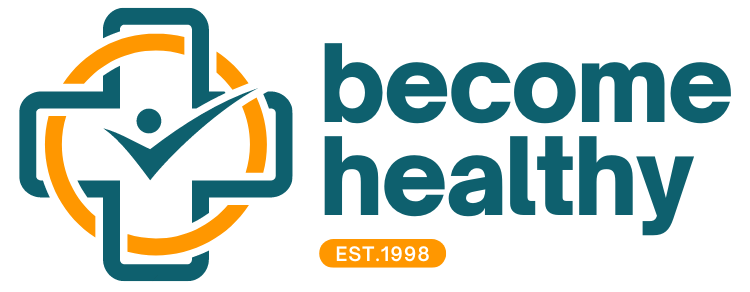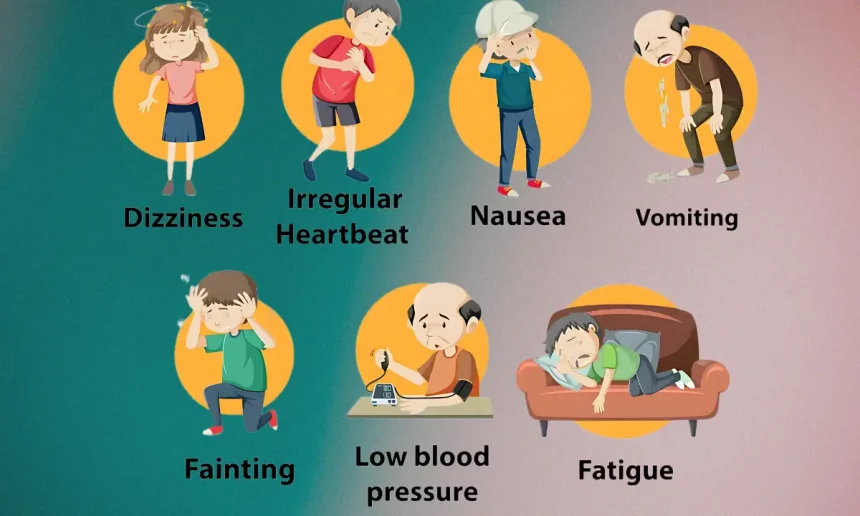Blood Pressure (BP)
Blood pressure is the amount of force your blood uses to get through your arteries. When your heart pumps, it uses force to push oxygen-rich blood out to your arteries. They bring it to your body’s cells and tissues. If your blood pressure is too high, it can cause health issues. The only way to know your blood pressure is to measure it.
What Is High Blood Pressure (BP) ?
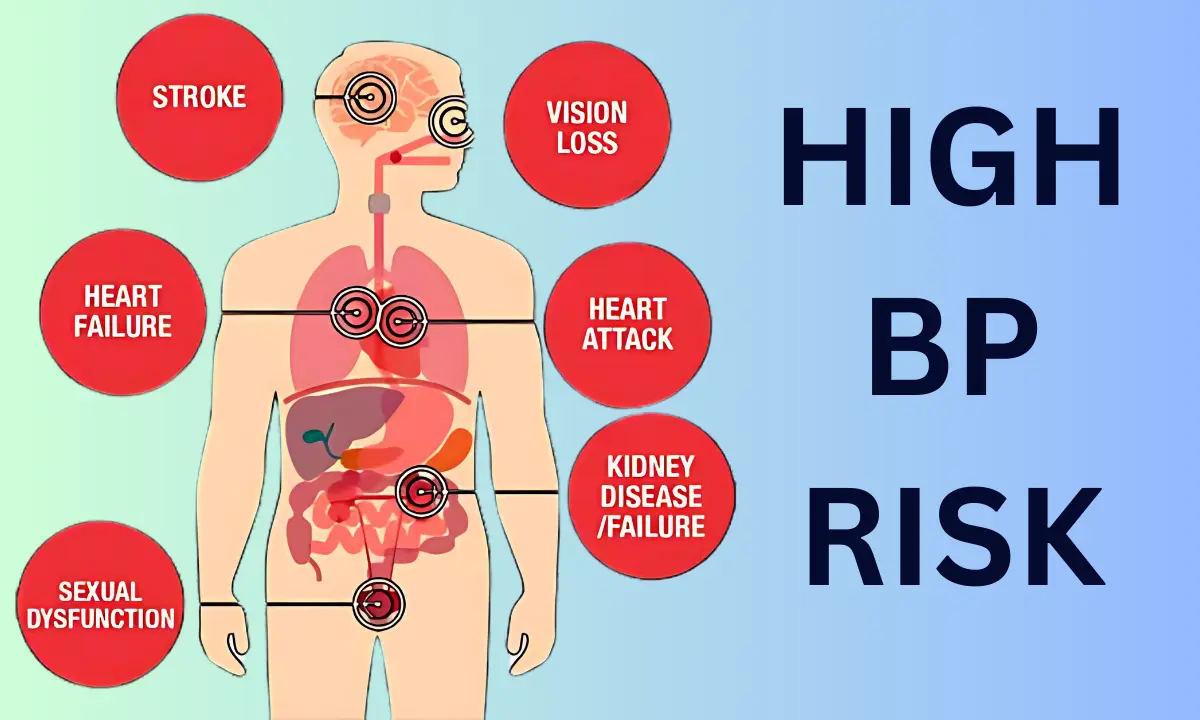
High blood pressure is also known as hypertension. It happens when the force of your blood pushing against the walls of your blood vessels is too high. High blood pressure can lead to other serious problems such as heart attack and stroke.
Why blood pressure fluctuates?
Blood pressure can fluctuate for several reasons:
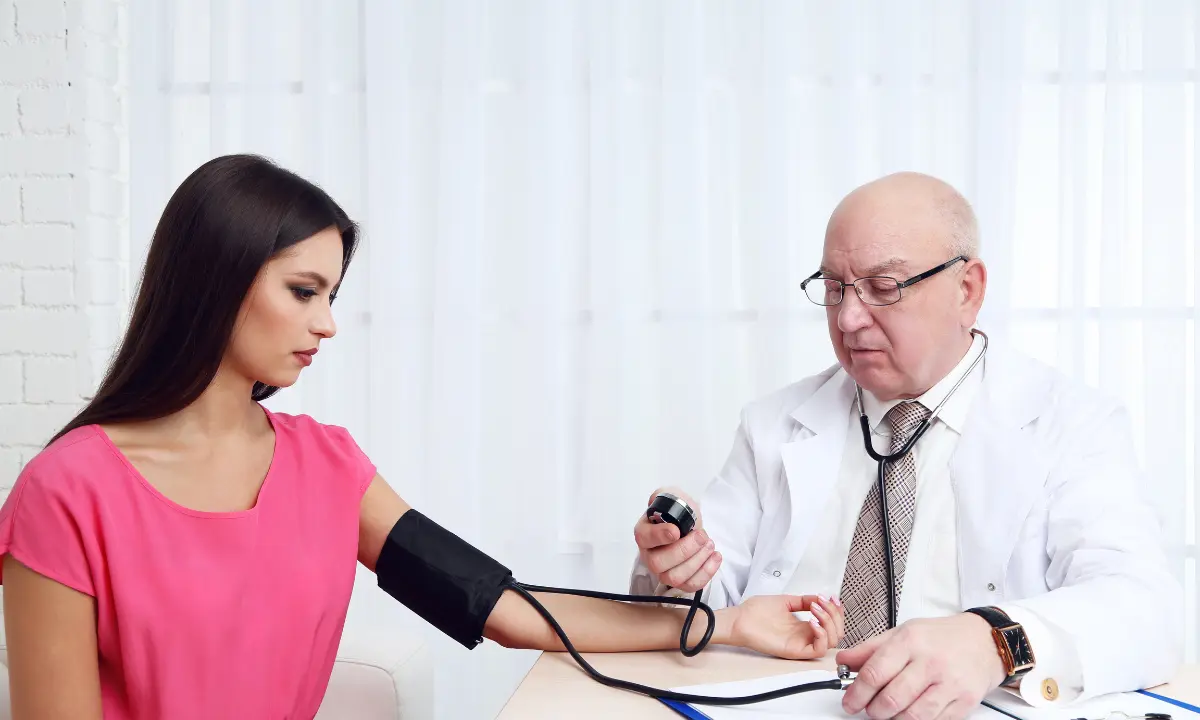
Physical Activity:
Exercise temporarily raises blood pressure, while rest can lower it.
Stress:
Emotional stress triggers the release of hormones that can increase blood pressure.
Diet:
High sodium intake can lead to temporary spikes in blood pressure, while foods rich in potassium can help lower it.
Time of Day:
Blood pressure naturally varies throughout the day, typically lower during sleep and higher when awake.
Caffeine and Alcohol:
Both substances can temporarily raise blood pressure.
Medications:
Certain medications can affect blood pressure levels, either raising or lowering them.
Temperature Changes:
Cold weather can constrict blood vessels, leading to higher blood pressure.
Health Conditions:
Conditions like anxiety, sleep apnea, or chronic kidney disease can contribute to fluctuations.
Symptoms Of High BP
High blood pressure (hypertension) is often asymptomatic, meaning many people may not experience noticeable symptoms. However, when symptoms do occur, especially in cases of severely elevated blood pressure:
Headaches:
Persistent or severe headaches can occur, often felt at the back of the head or around the temples.
Dizziness:
A sensation of lightheadedness or feeling faint may happen, particularly with sudden changes in position.
Nosebleeds:
While not common, frequent nosebleeds can be a sign of high blood pressure.
Shortness of Breath:
Difficulty breathing or feeling out of breath during normal activities may occur.
Fatigue:
Unexplained fatigue or tiredness can be a symptom, especially if related to other health issues.
Visual Changes:
Blurred or impaired vision may arise due to damage to the blood vessels in the eyes.
Chest Pain:
Discomfort or pain in the chest can occur, particularly if high blood pressure has affected the heart.
Palpitations:
A sensation of the heart racing or pounding.
Blood in Urine:
In severe cases, hypertension can affect kidney function, leading to blood in urine.
High BP Risk Factors
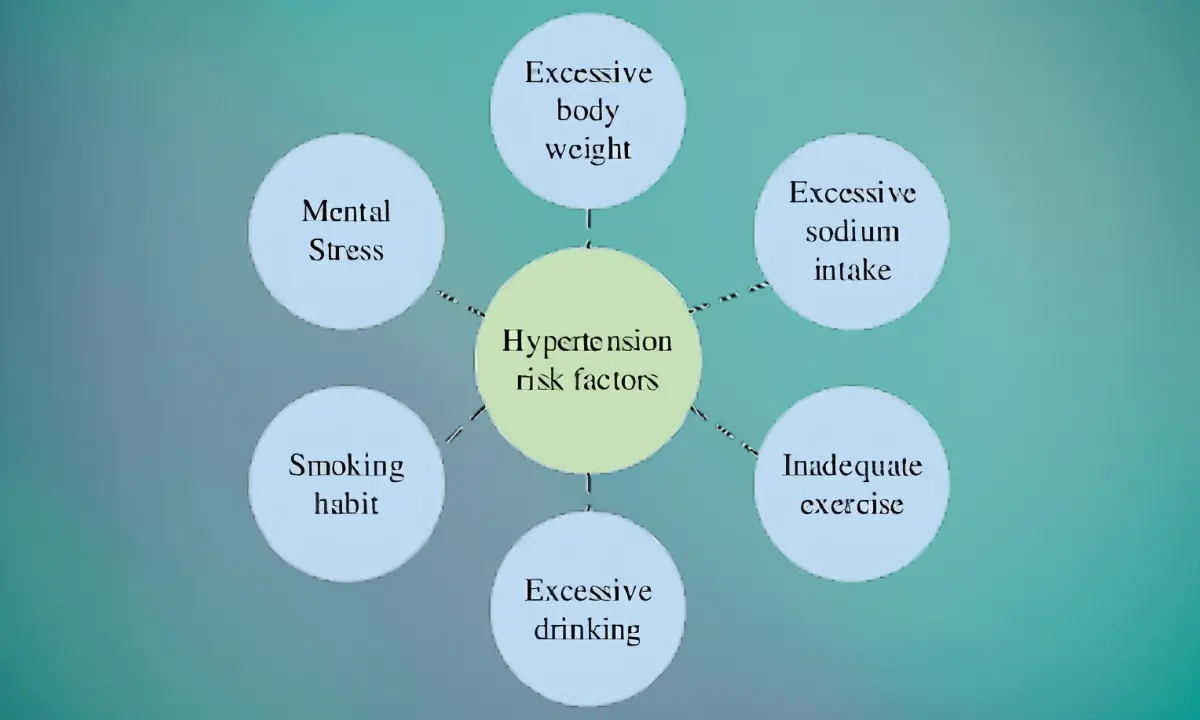
Being Overweight Or Obese
Obesity generally decreases parasympathetic tone and increases sympathetic activity. These changes in autonomic activity are associated with increased heart rate (HR), decreased HR variability, and reduced baroreflex sensitivity, as well as hypertension.
Too Much Salt (sodium) In Your Diet
Salt makes your body hold onto water. If you eat too much, the extra water in your blood means there is extra pressure on your blood vessel walls, raising your blood pressure.
If you already have high blood pressure, too much salt will raise it further, and may mean that any blood pressure medicines you’re taking don’t work as well as they should.
Cutting down on salt is one of the simplest ways to lower your blood pressure, and will start to make a difference very quickly, even within weeks.
Eating too much salt can lead to all the health problems high blood pressure causes, including heart disease, stroke, kidney disease and some types of dementia.
Too Little Potassium In Your Diet
Sodium and potassium are electrolytes that help your body maintain fluid and blood volume.
Consuming too much sodium and too little potassium can raise your blood pressure.
High blood pressure increases your risk of heart disease and stroke.
Not Being Physically Active
Exercise increases blood flow through all arteries of the body, which leads to release of natural hormones and cytokines that relax blood vessels, which in turn lowers blood pressure. Lack of physical activity also increases the risk of being overweight.
Drinking Too Much Alcohol
Drinking too much alcohol can significantly impact blood pressure. Here are some key effects:
Short-Term Effects
Temporary Increase:
Alcohol can cause a temporary spike in blood pressure shortly after consumption, which can be concerning for those with hypertension.
Long-Term Effects
Chronic Hypertension:
Regular heavy drinking can lead to sustained high blood pressure over time.
Heart Health:
Alcohol-related hypertension increases the risk of heart disease and stroke.
Mechanisms
Hormonal Changes:
Alcohol can affect the balance of hormones that regulate blood pressure.
Weight Gain:
Excessive drinking can lead to weight gain, which is a significant risk factor for high blood pressure.
Certain Chronic Conditions
Chronic conditions are long-term health issues that can significantly impact daily life and overall well-being. Here are some common chronic conditions and their implications:
Impact:
Increases the risk of heart disease, stroke, and kidney damage.
Management:
Lifestyle changes (diet, exercise), medication, and regular monitoring.
When is blood pressure checked?
Blood pressure is typically checked in various situations:
Routine Check-ups
During annual physical exams or regular health check-ups, blood pressure is routinely measured to monitor overall health.
Pre-existing Conditions
For individuals with conditions like hypertension, diabetes, or heart disease, blood pressure is often checked more frequently to manage these conditions effectively.
During Pregnancy
Blood pressure is monitored throughout pregnancy to check for conditions like gestational hypertension or preeclampsia.
When Symptoms Occur
If someone experiences symptoms such as headaches, dizziness, or chest pain, blood pressure may be checked to identify any potential issues.
Medication Management
When starting or adjusting medications that affect blood pressure, regular monitoring is crucial to assess the medication’s effectiveness and make necessary adjustments.
Lifestyle Changes
After implementing lifestyle changes (e.g., diet, exercise), it’s useful to check blood pressure to see how these changes impact overall readings.
Emergency Situations
Blood pressure is checked in emergency medical situations to assess the patient’s cardiovascular status.
